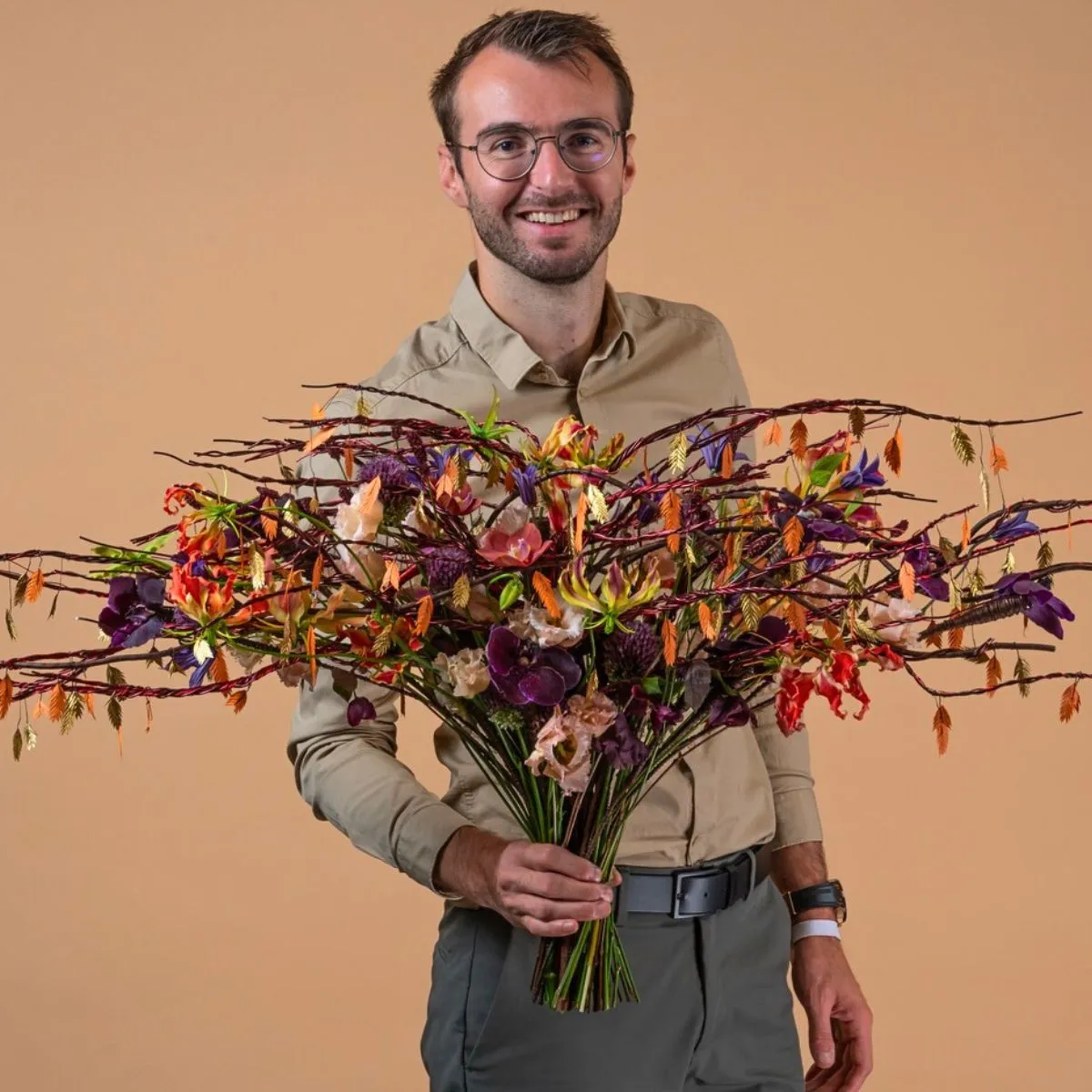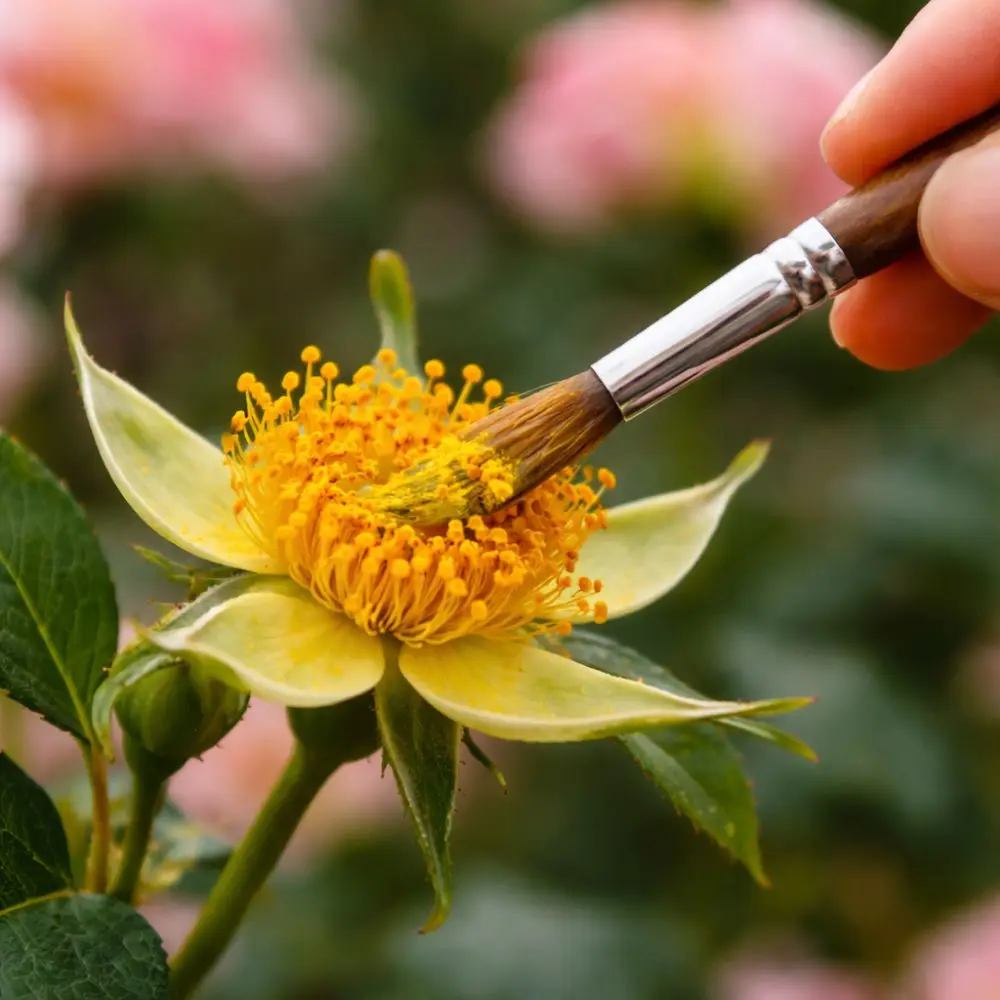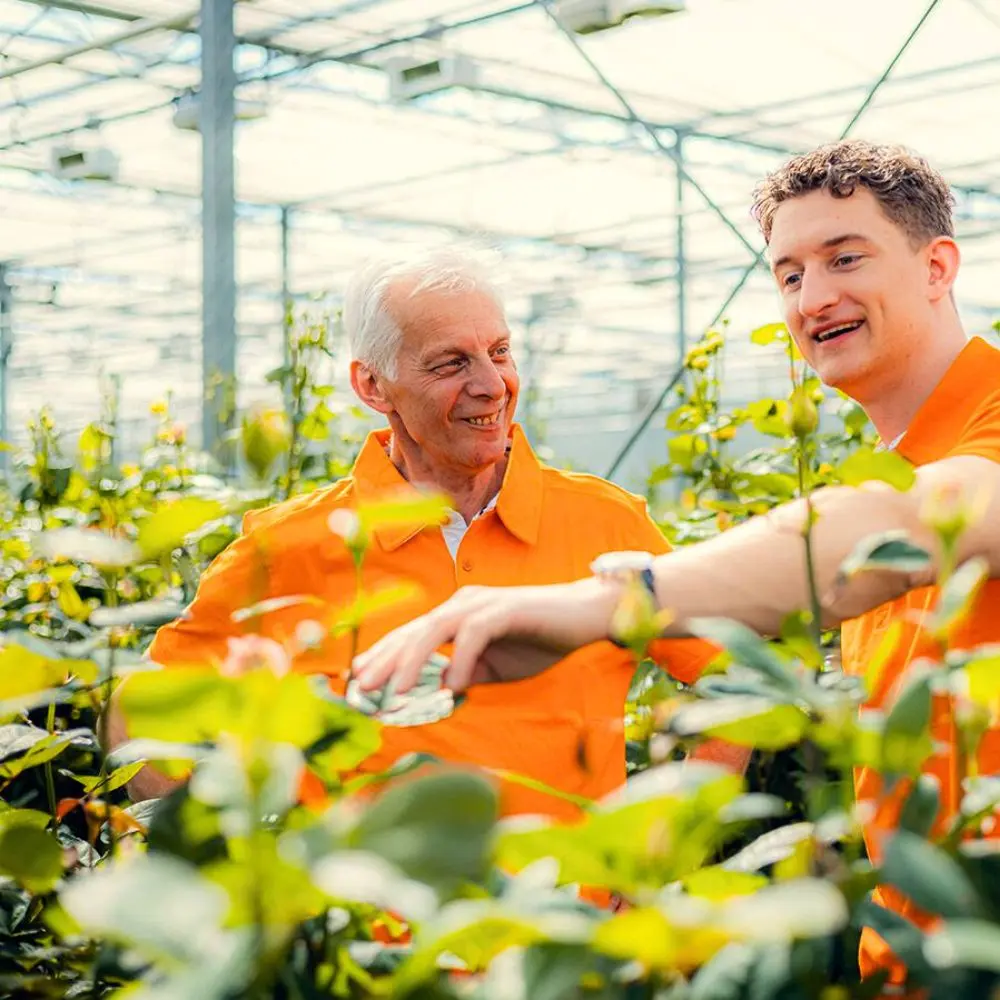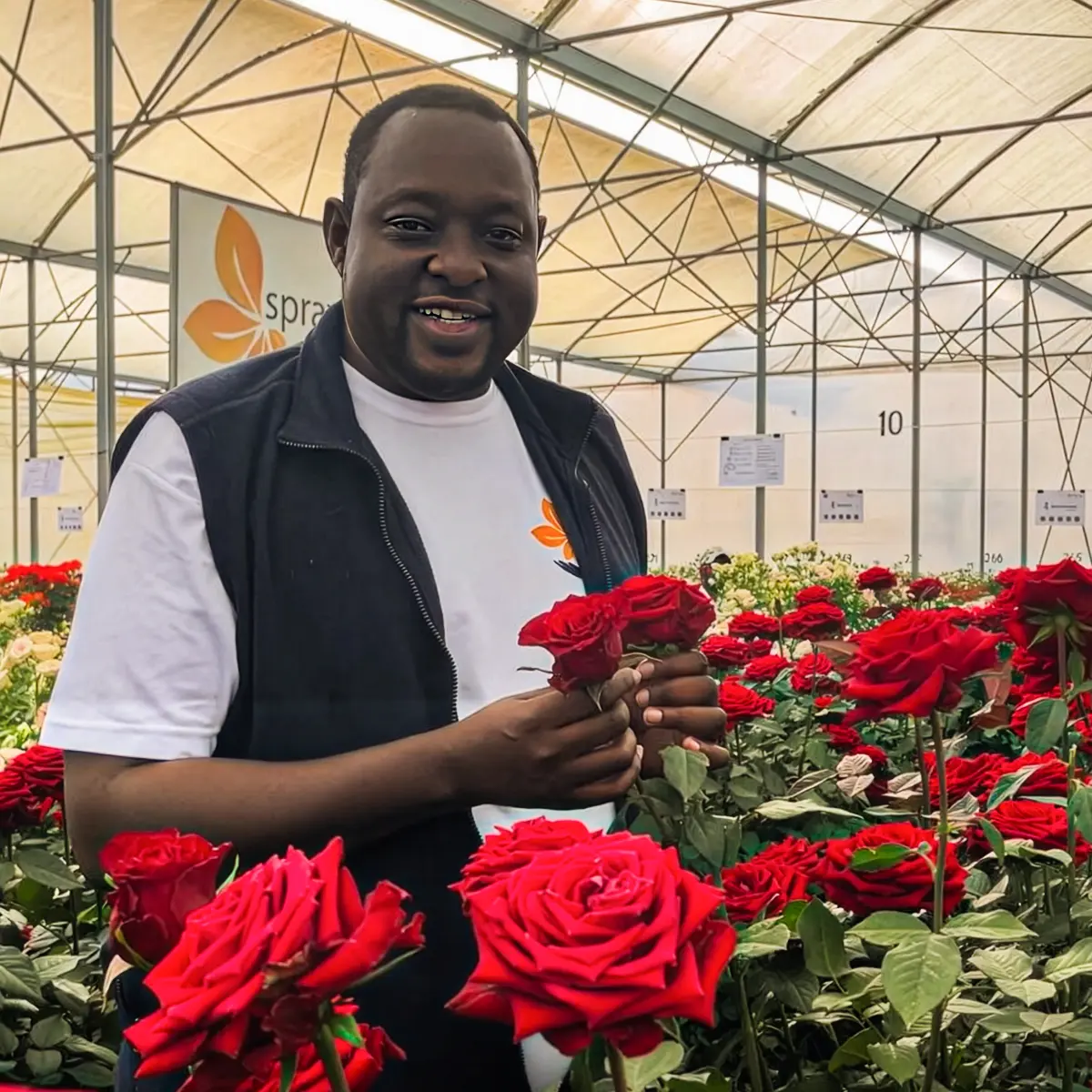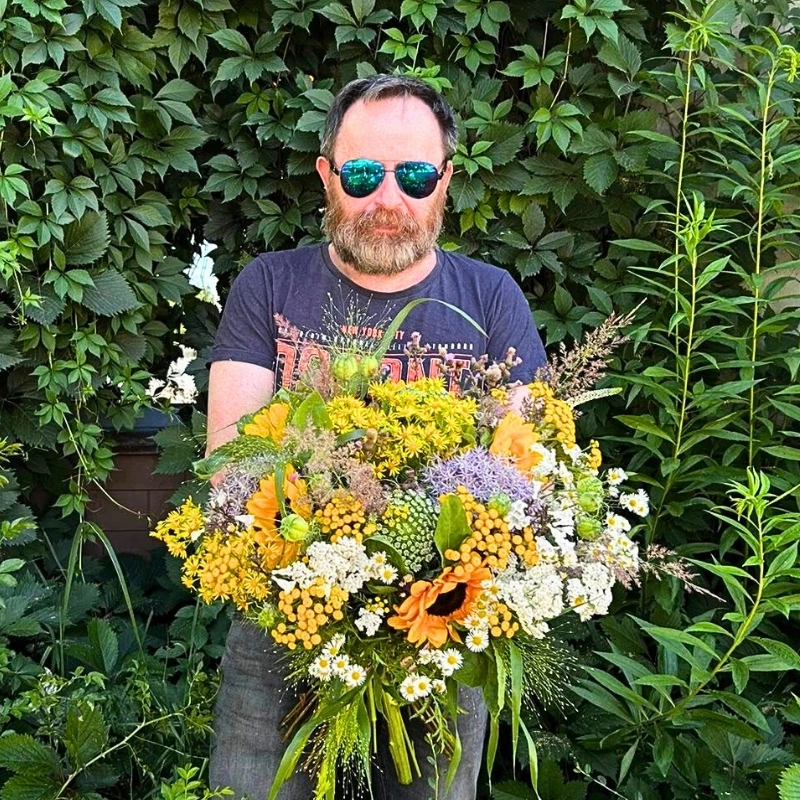This week's 10-question segment takes us to the second-generation director of Continental Breeding, Juan Damian Requena. He shares his passion and commitment to the family-owned company Plantas Continental and his role in the ornamental division at Continental Breeding.
Commercial Manager for the African region, Juan shares insights into new and interesting varieties bred and developed by Continental Breeding. These varieties are already gaining significant traction in different markets. Learn also about his inspirations and how he handles stressful moments. Read on!
Question 1
For those who don’t know you, who are you and what do you do?
My name is Juan Damian Requena, and I am part of the second generation of our family business, Plantas Continental, specifically in the ornamental division of Continental Breeding as a commercial for the African region and Community Manager in the Marketing department. I have also part of my activity in the selection of new varieties and administration.
From a personal perspective, I am the proud father of a 4-year-old boy."

Question 2
What is so special about your job?
There are many reasons why my work is special. One of the main ones is the opportunity to work closely with my family, sharing a common desire to ensure our business thrives and endures. This requires doing things right and with dedication. Additionally, connecting with people from different countries and cultures is a profoundly enriching personal experience.
However, focusing on my role as a breeder, what truly makes my work special is the diversity and dynamism involved. Working with hundreds of different varieties and identifying one that can stand out in the market is a thrilling challenge. Being part of the entire lifecycle of a commercial variety, from its initial selection to imagining the smile of a customer enjoying it in their home, is truly special."
Question 3
Are there any specific challenges or obstacles you’ve faced at work, and how did you overcome them?
As a breeder, the biggest challenge or obstacle is not having what the market demands, especially in a market that is constantly changing. In this context, there is a significant element of luck involved.
Developing new varieties is a long-term process. It can take years of research, experimentation, and trials before a new variety is commercially viable. During this time, consumer preferences and trends can shift, making it difficult to predict what will be in demand by the time a new variety is available.

To overcome this challenge, it is important to be informed, closely connecting with growers, buyers, and wholesalers as well as designers and influencers to understand what the market is looking for and try to anticipate future trends. Flexibility and adaptability are key; sometimes, it's about pivoting quickly when we see a shift in the market. Fostering a strong network within the industry can provide valuable insights and early warnings about emerging trends.
Despite the inherent unpredictability, being resilient and innovative, and maintaining a strong connection with the market, the crops, and the buyers, helps navigate these challenges and increase the chances of success."
Question 4
What are the threats in the industry, and if so, do you have any solutions for them?
As breeders, we face several significant threats in today's market. In addition to market fluctuations, as mentioned earlier, the investment costs required to develop new varieties have increased considerably, and competition is intense, adding additional pressure. It is also crucial to develop varieties that are resistant to pests and diseases in the face of changing climatic conditions.
The role of the breeder is becoming increasingly complex. Taking a proactive approach to innovation and adaptation is paramount. This involves closely collaborating with growers to understand their needs and priorities, and staying abreast of market trends. Investment in I+D as well as emerging technologies that can enhance effectiveness and efficiency in the breeding process is also necessary."

Question 5
How has technology like e-commerce platforms or digital marketing affected your industry? Which strategies have you employed to stay competitive?
These tools have allowed us to reach a wider and more diverse audience, facilitating the promotion of our varieties on a global scale.
We have adopted several key strategies, like a strong online presence through an optimized new website and active social media profiles, where we share relevant content about our varieties, or invested in advanced data analytics technologies.
Participating in virtual trade shows like TOTF had also been crucial for expanding our network during COVID period."

Question 6
Who (in or outside the floral industry) is an inspiring example to you? And Why?
My father, Juan Requena, and his brothers Eloy and Pedro Requena. Throughout my short career, I have been fortunate to meet many truly inspiring individuals within and outside of this industry, but they stand out as exceptional examples. They have been my guides from my early steps in the industry and continue to be so today.
In particular, my father embodies unwavering dedication and affection. His commitment and passion for our business have not only inspired my professional growth but also provided unwavering personal support and valuable lessons."

Question 7
How do you handle stress or difficult moments in your life?
Fortunately, I have the support of individuals both within and outside the company with whom I can openly express myself and establish boundaries. Additionally, maintaining a Mediterranean diet (gazpacho lover) and engaging in daily exercise play a significant role. A getaway with my family also helps."
Question 8
What has been the best (floral or non-floral) news for you lately, or of the last year?
The commercial investment in our varieties is always good news, a new opportunity. This is especially exciting when it involves new varieties, such as Superstition®, Bellalinda® Love, Frost®, or Bellalinda® Sweety, among others."
Question 9
Which is your favorite flower/plant and why is it good for you?
They would kill me if I didn't mention our varieties, haha... Jokes aside, Mayra’s®, especially in pastel colors. Varieties like Mayra’s Rose® Pink, Mayra’s Rose® Peach or Mayra’s Rose® Bridal Pink; they are awesome. I have to mention also Govinda®, I am fascinated by the blend of lavender tones it contains.

As for spray roses, I prefer stronger colors. My favorite is Bellalinda Cerise. Agronomically, it's an excellent plant with long stems, great resistance, and there is not a cerise color like this in the market at the moment. Without forgetting Bellalinda® Love, let me show you during the next IFTF."
Question 10
What are you doing this weekend?
I plan to celebrate San Juan’s Eve with my family."
Continental Breeding’s productivity-oriented approach reflects measurable innovation dimensions outlined in this comprehensive guide to modern rose genetics: Evaluating Innovation in Cut Rose Breeding.
All pictures courtesy of Juan Damian Requena.


